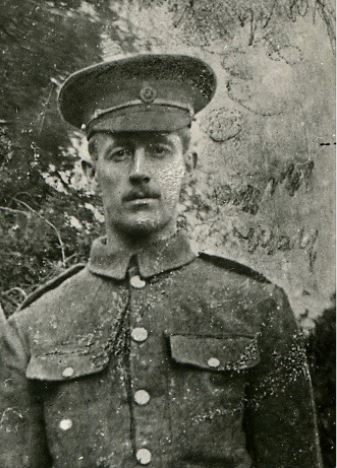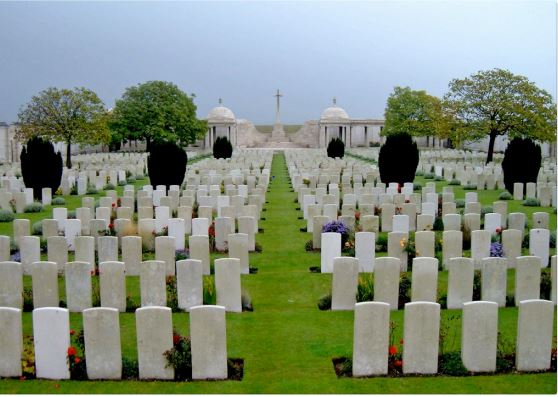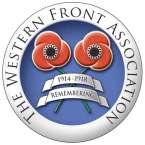2nd Life Guards

William Gilleece Dutton was born in Forthampton in 1889, one of five children of Henry and Mary Dutton. Henry had also been born in Forthampton whilst Mary came from King’s County (now Offaly), Ireland; Mary’s maiden name is unknown but may well have been Gilleece as that has Irish roots. Henry was a baker and flour dealer and the family lived at Brewer’s Cottage, Forthampton. William was educated at Tewkesbury Grammar School and, in 1911, was assisting Henry in the business as well as being Scoutmaster of Forthampton Troop.
William enlisted in Tewkesbury on 26 November 1914. He served as a Trooper in the Household Cavalry, specifically the 2nd Life Guards, for a Short Service engagement. His army service record includes a character reference in the form of a letter from Arnold H Wells, at Forthampton Vicarage: ‘I have known William Dutton for four years and have every reason to consider him a highly respectable and honourable man in every way. His character is as free from stain as it is full of good qualities’.
The 2nd Life Guards were part of the 7th Cavalry Brigade in the 3rd Cavalry Division and crossed to Belgium on 8 October 1914, landing at Zeebrugge. The regiment was engaged in much of the fighting from the autumn of 1914 onwards and fought most of the war as a dismounted force.
William sailed for France on 12 August 1915 to join his regiment at which point he was probably assigned to the Cyclists Company. The regiment as a whole was not involved in the Battle of Loos in September 1915 although the regimental diary refers to the detachment of B Squadron on 5 September and its deployment to the First Army at Loos. This suggests that William’s Cyclist Company was part of B Squadron and was involved in 3rd Cavalry Division’s relief of infantry units at Loos that started on 26 September.
Trooper William Gilleece Dutton was killed in action on 29 September 1915, probably as a result of artillery fire as he was said to have been ‘guarding the bicycles’. William’s body was never recovered or identified and he is commemorated instead on the Loos Memorial at Loos-en- Gohelle. William was awarded the 1914-15 Star Medal.
As William was not a citizen of Tewkesbury he is only commemorated in the town on the Tewkesbury Grammar School Memorial although he is also remembered on the War Memorial at Forthampton.
Two of William’s brothers, Alfred and Gilbert, also volunteered in 1914 and both survived the war.
Extracted from a biography in A Noble Band of Heroes published by the Tewkesbury Historical Society.

